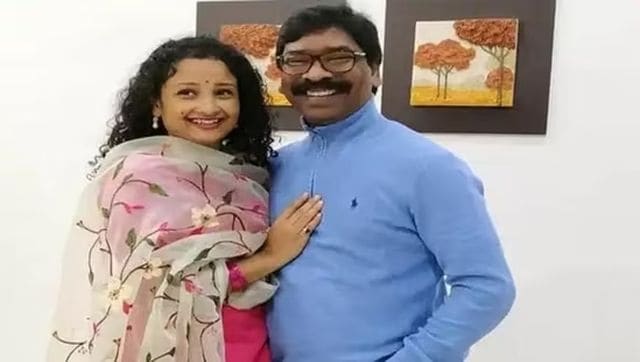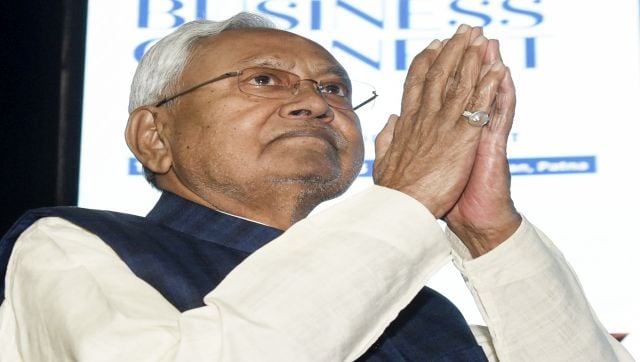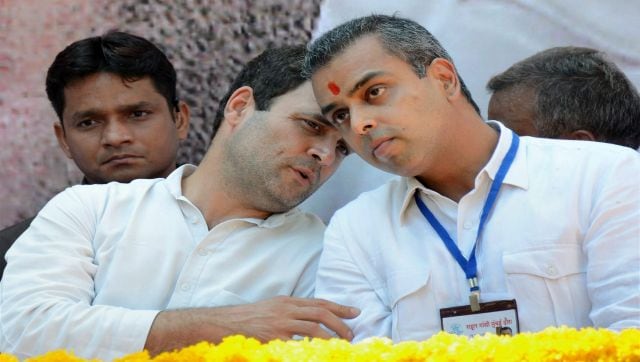In his first visit to the state since the implementation of the National Register of Citizens (NRC) in Assam, Home Minister Amit Shah told leaders at a North East Democratic Alliance (NEDA) meeting on Monday that Citizenship Amendment Bill (CAB) has not gone into the oblivion.
"Questions are being raised about the NRC by different sections. I just want to say this that the BJP-led government is committed to ensuring that not a single illegal immigrant enters the region," the BJP chief said.
Shah’s statement raises hopes of the passage of a Bill that provides for Indian citizenship to Hindus, Jains, Christians, Sikhs, Buddhists and Parsis from Bangladesh, Pakistan and Afghanistan after seven years of residence in India instead of 12 years. The possibility of considering the legislation, which was not passed by the Rajya Sabha earlier this year, comes less than a fortnight after the final NRC list was published.
The final NRC list was published on 31 August after a six-year-long exercise and it excluded over 19 lakh people – which accounts for 6 percent of the population of Assam. This figure is also in contrast to Shah’s statement after the first NRC list was published in 2018, calling over 40 lakh applicants left out of the July draft of the NRC ‘ghuspetia’ (infiltrators).
BJP’s campaign against alleged infiltrators built the basis of their poll pitch during the 2014 Lok Sabha election, 2016 Assembly election and 2019 Lok Sabha election, with the Barak valley, dominated by Bengali Hindus, playing a significant part in the party's victory. The saffron party is now looking at a re-election in the state during the Assembly elections due to be held in 2021.
The exclusion of Bengali Hindus from the NRC – also the BJP’s major vote bank in Assam – has the party in a fix, an NDTV report claimed. BJP leaders from the state and at the Centre began the rumblings against an exercise they had supported initially.
Assam chief minister Sarbananda Sonowal had met Shah ahead of the NRC’s publication and said that legislative measures would be explored to delete the wrongful inclusion of names in the register.
Ahead of the final NRC’s release, both the Centre and the state had filed petitions with the Supreme Court for re-verification of the NRC data. After the apex court turned down the petitions, Assam BJP chief Ranjeet Dass had said last month, "We will appeal to the government that if names of Indians are excluded then we should go for legislation. There is no question of religion here; one may be Hindu, Muslim or any caste or community."
He added that ensuring the rights to genuine citizens might mean “bringing a new law, amending existing legislation or some other means through Parliament or the state Assembly”.
In a 27 August press meet, Dass also accused NRC coordinator Hajela of “carrying out the revision work based on his own opinion and those of two to three organisations, after the SC asked chief minister Sarbananda Sonowal not to interfere in the process”.
Senior Assam minister Himanta Biswa Sarma also launched an aggressive narrative against the NRC, claiming that "legacy" papers have been forged by a substantial number of people rendering the process of updating the NRC ineffective.
Sarma added that the BJP is committed to passing the Citizenship Amendment Bill (CAB) in the next Parliament session. “A small portion of Hindu migrants have been left out of the list. They had their own refugee certificates, but that was not taken into account,” he told NDTV.
“We realised in the first draft list itself that the process was leaving out indigenous people due to lack of documents. We distinguish between refugees and infiltrators, and Hindus from Bangladesh fall in the former category. That is what we will explain to our Assamese people also, that we should throw out the infiltrators but respect refugees,” said Pradip Thakuriya, vice-president, Assam BJP.
Silchar MLA Dilip Kumar Paul claimed around 95-96 percent illegal Bangladeshi Muslims names have appeared in the list. "On the other hand, a major portion of Hindus have been excluded from the list. BJP's stand is that Hindus can never be foreigners. Those who are foreigners became Indians and those who are Indians became foreigners. Around Rs 1,300 crore was utilised in the entire process and we want an error-free, foreigner-free NRC. We can never accept this," he said.
Assam BJP state spokesperson Roopam Goswami even said that the CAB can be passed now in the Rajya Sabha with the saffron party holding majority seats in the Upper House.
Congress leader and Nagaon MP Pradyut Bordoloi said that the BJP had been polarising the NRC process on the basis of religion. “After the final draft was published, they realised that a large chunk of their supposed vote bank, mainly Bengali Hindus, was also excluded. They tried their best to delay the process by creating hurdles. The latest strategy is to question the credibility of the NRC coordinator Hajela, pass the blame to him,” he told The Wire.
A wave of refugees came to Assam in the 1960s and 1970s around the 1971 Bangladesh Liberation War. An estimated up to 1 crore people fled from then East Pakistan to India during this period, an India Today report said. The NRC is a legacy of the Assam Accord of 1985 and the Assam movement that preceded it. The Accord mandated that all those who came to Assam from East Pakistan (now Bangladesh) after the midnight of 24 March, 1971 are foreigners. A key demand of the Assam movement against ‘foreigners’ was for ‘detection, deletion and deportation’ of illegal Bangladeshi migrants.
The apex court-appointed a coordinator in 2013 and supervised each move of the NRC apparatus handled by 52,000 Assam government employees on deputation. On the ground, the NRC headcount started in 2015. A large number of Indians, including those from tribes in Assam, found it extremely hard to arrange legacy data and other relevant documents to prove that they or their parents or grandparents had lived in the state before 1971.
Shah’s visit to Guwahati points to the BJP’s plan to discredit the NRC exercise, appease the Bengali Hindu vote bank with the CAB and move the cut-off year to determine citizenship status to 1951. The NRC looked at granting citizenship through a religiously neutral process of assessing relevant documents and records relating to a person. Meanwhile, CAB looks at possible citizenship to members belonging to various major religions, barring Muslims. Will BJP’s apparent attempt at appeasing its vote bank in Assam lead to the victimisation of a minority community?
September 12, 2019 at 09:42AM









No comments:
Post a Comment